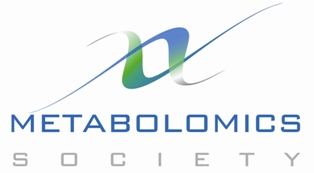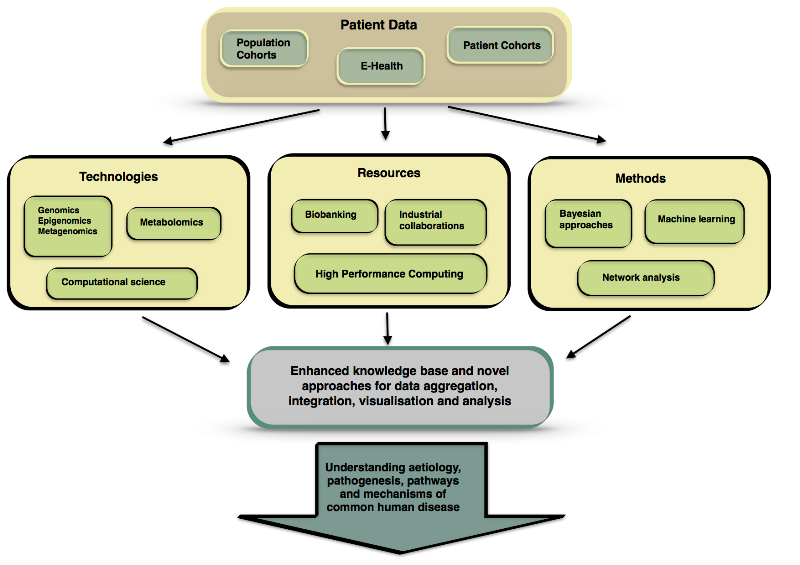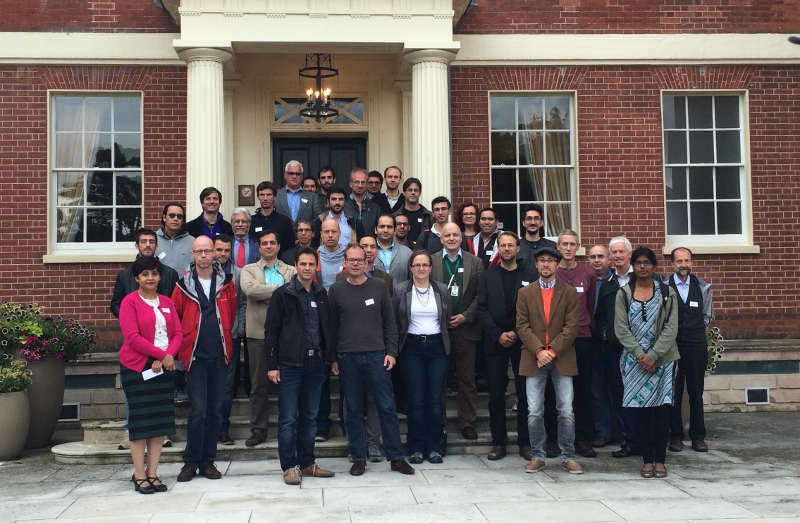
TMIC and the Metabolomics Society
Issue 53 - January 2016
CONTENTS:
Online version of this newsletter:
http://www.metabonews.ca/Jan2016/MetaboNews_Jan2016.htm

 |
| Published
in partnership between TMIC and the Metabolomics Society Issue 53 - January 2016 |
|
CONTENTS: |
|
|
 |
| TMIC
Services |
 |
Metabolomics Society News |
 There are several metabolomics-themed meetings being planned
for 2016, so we hope that you will be able to identify the Official Metabolomics
Society annual meeting which is in Dublin (June 27 –
June 30, 2016).
There are several metabolomics-themed meetings being planned
for 2016, so we hope that you will be able to identify the Official Metabolomics
Society annual meeting which is in Dublin (June 27 –
June 30, 2016).| |
Metabolomics Spotlight
|


| |
MetaboInterview
|
| Group
leader Bioinformatics and Mass Spectrometry, Leibniz
Institute of Plant Biochemistry (IPB Halle), Halle,
Germany |
|
 |
Biography Steffen Neumann studied computer science and bioinformatics at Bielefeld University, and now his group focuses on the development of tools and databases for metabolomics and computational mass spectrometry. The group develops algorithms for data processing of metabolite profiling experiments, which are available in several Open Source Bioconductor packages, and addresses the identification of unknowns in mass spectrometry data. The IPB is member of the MassBank consortium and operated the first MassBank server in Europe. The MetFrag and MetFusion tools allow the identification of compounds where no reference spectra are available. |
 |
Metabolomics Current Contents
|
Metabolomics Events
|
| 11-12 Feb 2016 |
Metabolite identification with the
Q Exactive and LTQ Orbitrap The course will be taught by experts in the fields of metabolomics and chemical analysis and will include significant hands-on experience using both the Q Exactive and LTQ-Orbitrap mass spectrometers and related software/databases/libraries. The course will focus on:
For further information and registration details, please visit http://www.birmingham.ac.uk/facilities/metabolomics-training-centre/courses/metabolite-identification.aspx or contact Dr Cate Winder (C.L.Winder@bham.ac.uk). |
| 14-19 Feb 2016 |
EMBO Practical Course on
Metabolomics Bioinformatics for Life Scientists We will have lively and interactive discussion throughout the course in addition to the hands-on data analysis and processing. We encourage you to bring your data, problems you might have with a particular data set or study for group discussion. You will be asked to present your work and participate in the discussions from day one. Who is this course aimed at: This course is aimed at PhD students, post-docs and researchers with at least two or three year’s experience in the field of metabolomics who are seeking to improve their skills in metabolomics data analysis. Topics covered:
|
| 23-24 Feb 2016 |
Quality Assurance and Quality
Control in Metabolic Phenotyping
For further information and registration details, please visit http://www.birmingham.ac.uk/facilities/metabolomics-training-centre/courses/quality-phenotyping.aspx or contact Dr Cate Winder (C.L.Winder@bham.ac.uk). |
| 21-23 Mar 2016 |
Clinical & Pharmaceutical
Solutions through Analysis Make plans to attend the 2nd Annual Metabolomics
Symposium on Clinical & Pharmaceutical Solutions
through Analysis (CPSA Metabolomics 2016). This unique
event is highly interactive and dedicated to the needs
of the clinic. The program features updated
perspectives and experiences on clinical and
pharmaceutical analysis. Imagination and stimulating
discussion are central to each CPSA Metabolomics
session and event. For more information, visit http://www.cpsa-metabolomics.com/2016/index.shtml |
| 30 Mar to 1 Apr 2016 |
The Australian & New Zealand
Metabolomics Conference (ANZMET 2016) Its aim is to promote collaboration, innovation, and community-building in metabolomics across private and government sectors by open engagement of all researchers and institutions throughout Australia and New Zealand. The conference is actively supported by the Australia & New Zealand Metabolomics Network (ANZMN), in conjunction with the Metabolomics Society and Metabolomics Australia. Several keynote speakers will present at the conference, including Professor David Wishart amongst others.
|
| 3-7 Apr 2016 |
Microscale Separations and
Bioanalysis: MSB 2016 To ensure a stimulating yet intimate environment for discussions, MSB 2016 will be limited to 275 delegates so we encourage you submit an abstract before the Jan. 15, 2016 deadline for late breaking submissions. We invite you to browse our conference website (www.msb2016.org) to learn more about our exciting scientific program. |
| 4-6 Apr 2016 |
Metabolomics with the Q Exactive
For further information and registration details, please visit http://www.birmingham.ac.uk/facilities/metabolomics-training-centre/courses/q-exactive.aspx or contact Dr Cate Winder (C.L.Winder@bham.ac.uk). |
| 18 Apr to 26 May 2016 |
Copenhagen School of Chemometrics -
2016 (CSC-2016)
How to enroll in the CSC-2016? Please, send an e-mail to Jose Amigo (jmar@food.ku.dk) with the information requested in this flyer. |
| 20-22 Apr 2016 |
Multiple biofluid and tissue types,
from sample preparation to analysis strategies for
metabolomics
|
| 27-30 Jun 2016 |
Metabolomics 2016 The conference programme will cover all aspects of metabolomics under five broad themes: Metabolomics in Nutrition and Food Research, Metabolomics in Health and Disease, Advancing the Field, Environmental, Plant and Model Organisms. For further details, visit http://metabolomics2016.org. |
Metabolomics Jobs |
This is a resource for advertising positions in
metabolomics. If you have a job you would like posted in this
newsletter, please email Ian Forsythe (metabolomics.innovation@gmail.com).
Job postings will be carried for a maximum of four issues
(eight weeks) unless the position is filled prior to that
date.
Jobs Offered
| Job Title | Employer | Location | Posted | Closes | Source |
|---|---|---|---|---|---|
| Senior Fellow (Postdoctoral) Position |
University of Washington | Seattle, WA, USA |
11-Dec-2015 |
Until filled | Metabolomics Society Jobs |
| IEU Metabolomics Facility Manager |
University of Bristol | Bristol, UK |
3-Dec-2015 |
19-Jan-2016 |
University of Bristol |
| Field Application Specialist
Metabolomics/Mass spectrometry |
Biocrates Life Sciences |
East Coast, USA |
25-Nov-2015 |
|
Biocrates Life Sciences |
| Chemist for Public Health |
Silent Spring Institute |
Newton, MA, USA | 23-Nov-2015 |
Until filled |
Metabolomics Society Jobs |
| Molecular or Cellular Biologist for Public
Health |
Silent Spring Institute | Newton, MA, USA | 23-Nov-2015 |
Until filled | Metabolomics Society Jobs |
| Data Scientist for Public Health |
Silent Spring Institute | Newton, MA, USA | 23-Nov-2015 |
Until filled | Metabolomics Society Jobs |
| Assistant Professor |
Michigan State University | East Lansing, Michigan, USA | 23-Nov-2015 |
Until filled | Metabolomics Society Jobs |
| Postdoctoral Position in Metabolomics |
Oregon State University | Corvallis, Oregon | 17-Nov-2015 |
Until filled | Metabolomics Society Jobs |
| Computational Biology Faculty in Food and
Nutritional Metabolomics |
Ohio State University | Columbus, Ohio, USA | 10-Nov-2015 |
Until filled | Metabolomics Society Jobs |
| Bioinformatics Expert and Data Scientist:
Metabolomics |
The University of Lausanne | Lausanne, Switzerland | 5-Nov-2015 |
15-Jan-2016 | The University of Lausanne |
|
Ian J. Forsythe Double AB, MSc Editor, MetaboNews Department of
Computing Science
University of Alberta 221 Athabasca Hall Edmonton, AB, T6G 2E8, Canada Email: metabolomics.innovation@gmail.com Website: http://www.metabonews.ca LinkedIn: http://ca.linkedin.com/in/iforsythe Twitter: http://twitter.com/MetaboNews Google+: https://plus.google.com/118323357793551595134 Facebook: http://www.facebook.com/metabonews |
This newsletter is published in
partnership between The Metabolomics Innovation Centre
(TMIC, http://www.metabolomicscentre.ca/) and the Metabolomics
Society (http://www.metabolomicssociety.org)
for the benefit of the worldwide metabolomics
community.
|